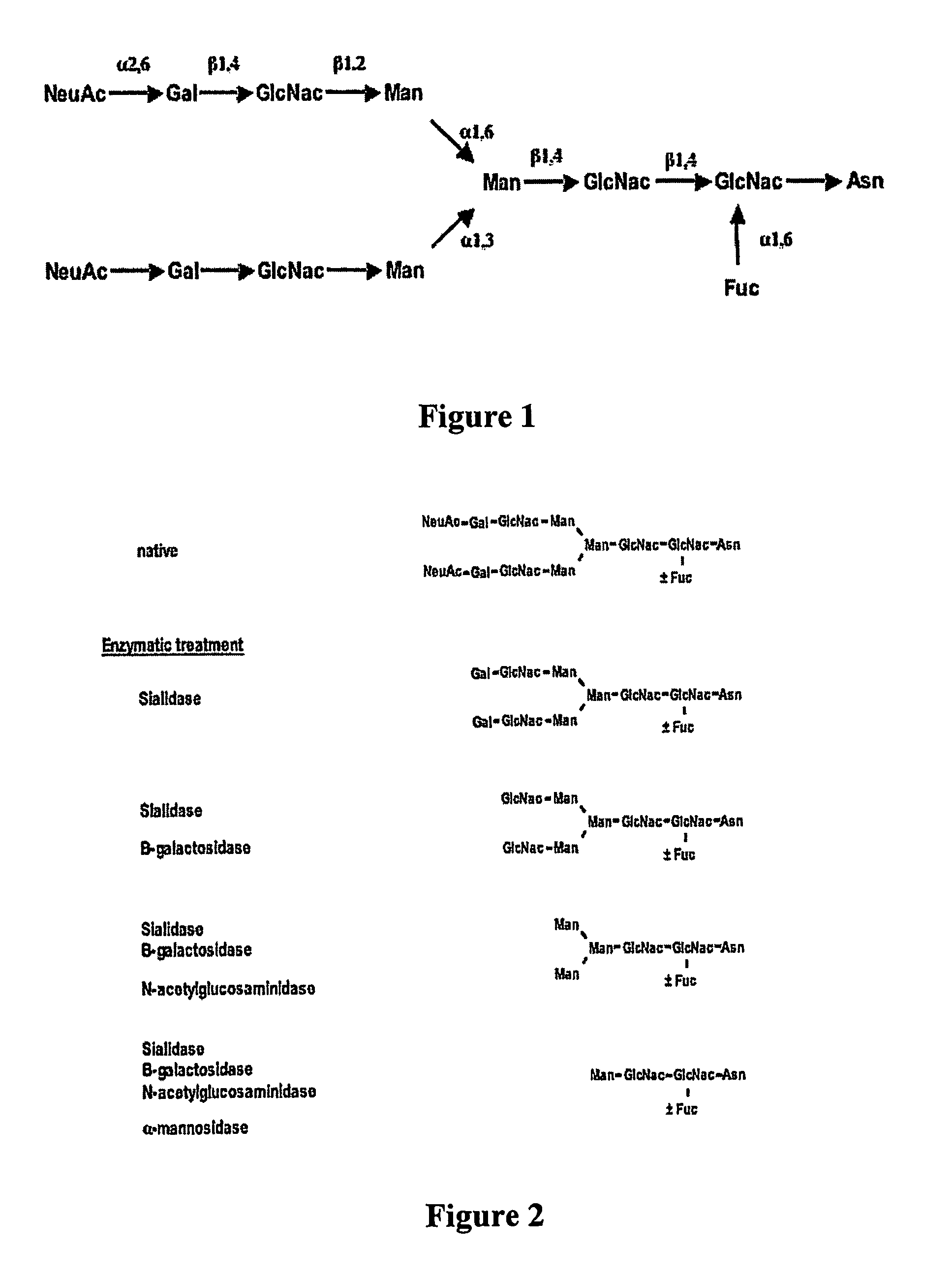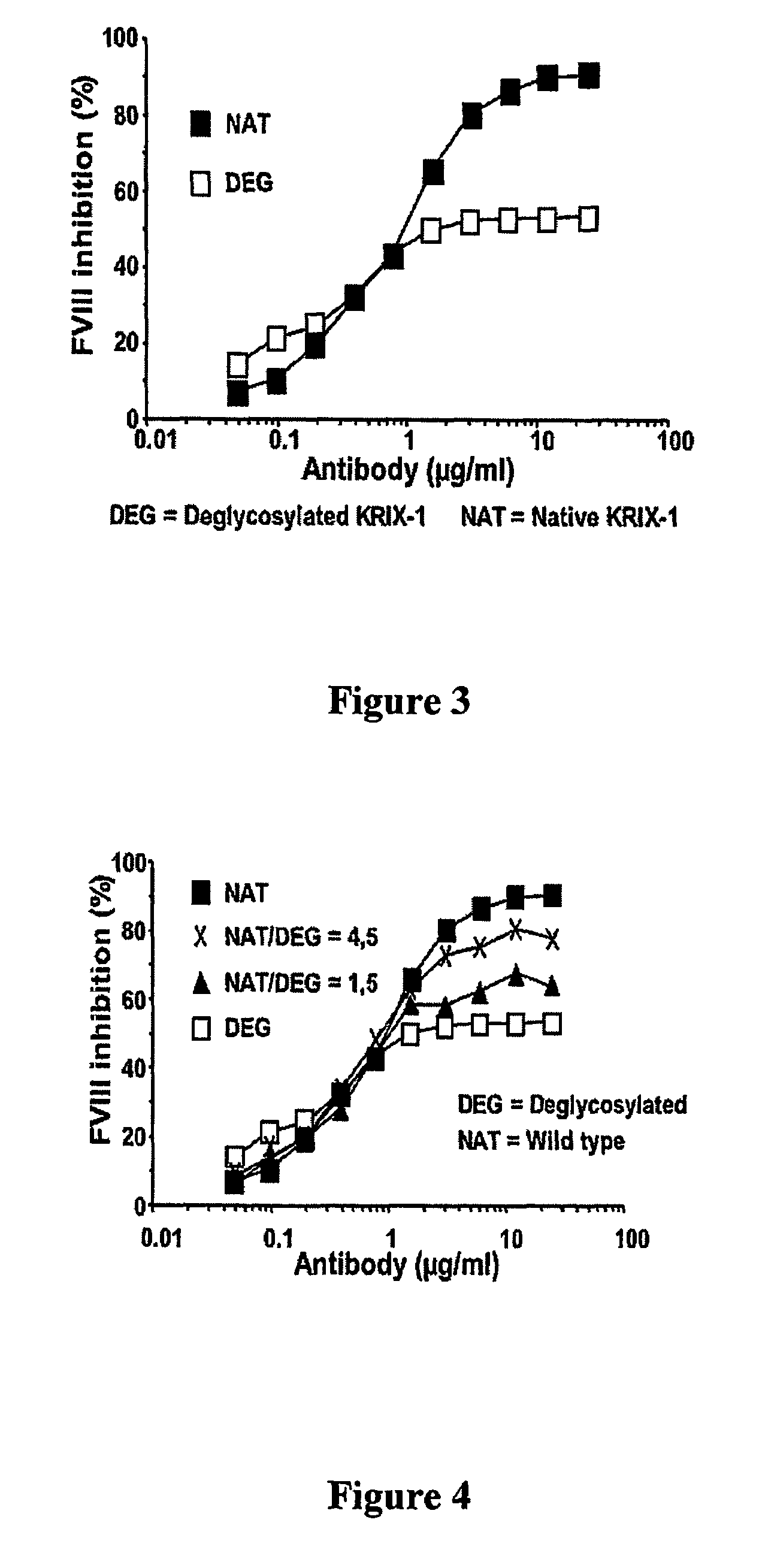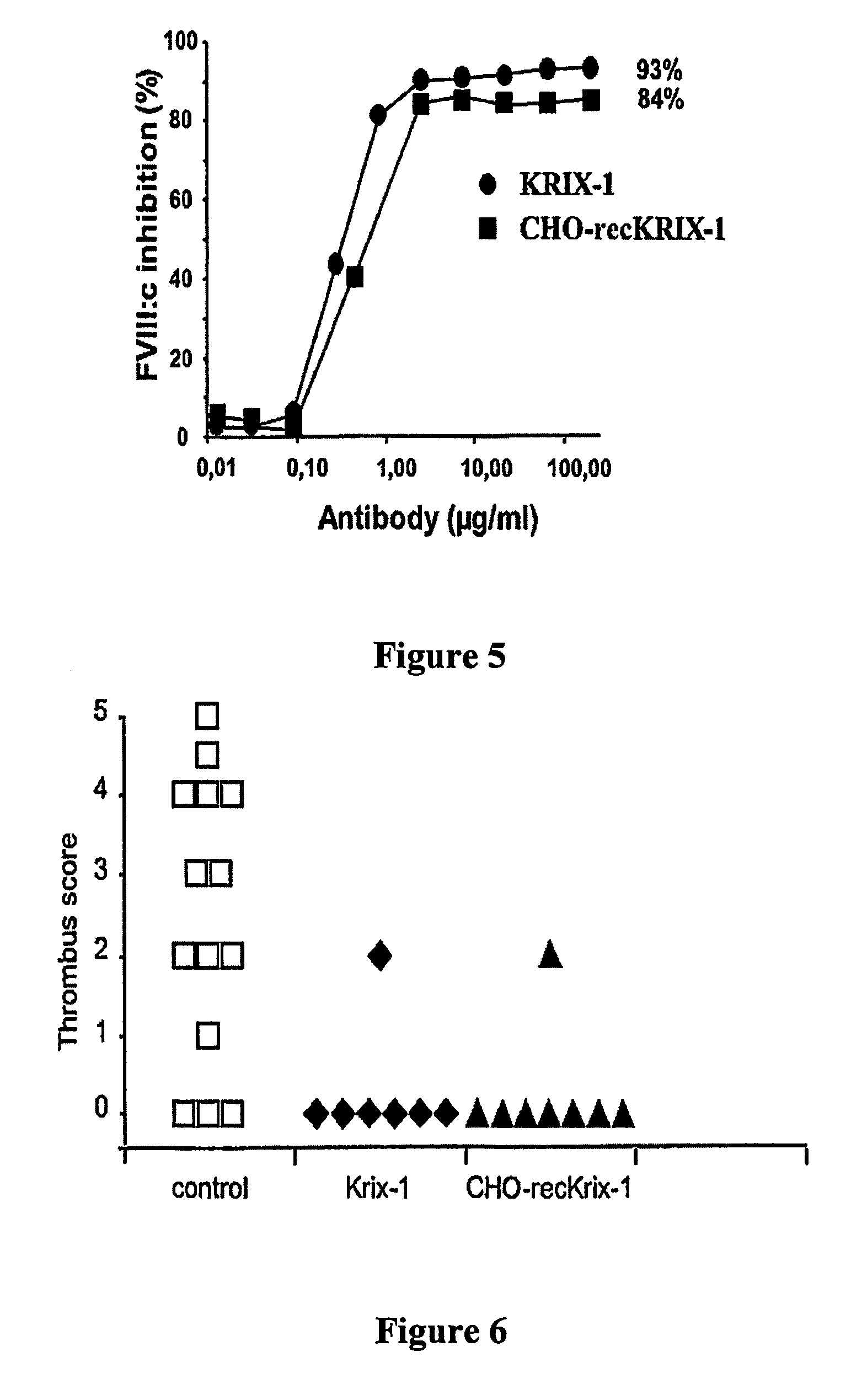Factor VIII inhibitory antibodies with reduced glycosylation
a technology of inhibitory antibodies and glycosylation, applied in the field of modification of inhibitory antibodies, to achieve the effect of enhancing reducing the maximal inhibitory activity of an antibody against fviii
- Summary
- Abstract
- Description
- Claims
- Application Information
AI Technical Summary
Benefits of technology
Problems solved by technology
Method used
Image
Examples
example 1
Effect of Deglycosylation on FVIII Inhibition by Krix-1
[0211]KRIX-1 (0.5 mg / ml in PBS) was mixed with N-glycosidase-F (roche diagnostics Gmbh, Mannheim, Germany) at final concentration of 2 U / ml. The mixture was incubated at 37° C. during 72 hours under gentle stirring.
[0212]The inhibitory activity of native and deglycosylated KRIX-1 was assessed in a Bethesda assay (Kasper et al. (1975), cited supra). Therefore, one volume of antibody at various dilutions in TBS (Tris 20 mM, NaCl 0.15 M, pH 7.4) was mixed with one volume of a pool of normal human plasma and incubated for 2 h at 37° C. The pool of normal plasma had been constituted by mixing plasma from 10 normal individual and buffered by addition of Hepes (100 mM) to a final concentration of 10 mM. The residual FVIII activity was then measured using a modification of the DADE FVIII chromogenic assay (Dade AG, Marburg, Germany). In this assay, thrombin-activated FVIII accelerates the conversion of factor X into factor Xa in the pre...
example 2
Mixing Native and Deglycosylated KRIX-1 Allows the Selection of Antibody Mixtures Inhibiting FVIII to Different Levels
[0214]Mixtures containing different ratio of deglycosylated with N-glycosidase-F versus native KRIX-1 were prepared. Each mixture was diluted to various antibody concentrations ranging between 0.05 and 25 microgram / ml. One volume of each dilution was mixed with one volume of a pool of normal human plasma. After 2 hours period incubation at 37° C., the residual FVIII was assesed using a chromogenic assay (Factor VIII Chromogenic assay, Dade Behring, Marburg, Germany). The native and deglycosylated KRIX-1 inhibited FVIII activity by about 90% and 50%, respectively (FIG. 4). By contrast, a mixture of 4,5 native antibody for 1 deglycosylated antibody resulted in a maximal FVIII inhibition of about 80% whereas a mixture containing 1,5 native KRIX-1 for 1 native antibody inhibited about 65% FVIII activity (FIG. 4). Mixtures inhibiting FVIII activity to any level comprised ...
example 3
Recombinant Krix-1 Produced in CHO Cells (CHO-recKRIX-1) has a Lower FVIII Inhibitory Activity than Krix-1 (Produced by a Human Lymphoblastoid Cell Line)
[0215]RNA from KRIX-1 EBV-immortalised human B cells was isolated using TRIzol Reagent according to the manufacturer's instructions (Life Technologies). cDNA was synthesised with the SuperScript pre-amplification system for first-strand cDNA synthesis.
[0216]The sequences encoding the heavy or light chain were amplified by RT.PCR on mRNA prepared from KRIX-1 cells using the QuickPrep®Micro mRNA Purification Kit (Amersham Pharmacia Biotech, Rosendaal, The Netherlands). Specific PCR primers for the heavy chain were: forward primer 5′-cggggtaccccaccATGGACTGGACCTGGAGGATC-3′ (SEQ ID NO:5) corresponding to nucleotides (nt) 1 to 21 (in capitals) of the cDNA sequence (WO 01 / 04269 A1), and containing a KpnI site (underlined) for cloning purposes and a Kozak sequence (bold italic); reverse primer: 5′-tatggccgacgtcgactcATTTACC-CGGAGACAGGGAGAG-3...
PUM
| Property | Measurement | Unit |
|---|---|---|
| pH | aaaaa | aaaaa |
| survival time | aaaaa | aaaaa |
| concentrations | aaaaa | aaaaa |
Abstract
Description
Claims
Application Information
 Login to View More
Login to View More - R&D
- Intellectual Property
- Life Sciences
- Materials
- Tech Scout
- Unparalleled Data Quality
- Higher Quality Content
- 60% Fewer Hallucinations
Browse by: Latest US Patents, China's latest patents, Technical Efficacy Thesaurus, Application Domain, Technology Topic, Popular Technical Reports.
© 2025 PatSnap. All rights reserved.Legal|Privacy policy|Modern Slavery Act Transparency Statement|Sitemap|About US| Contact US: help@patsnap.com



